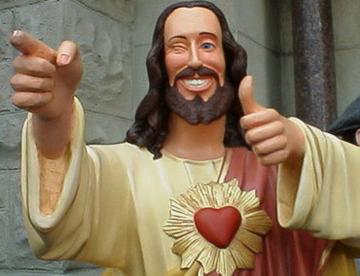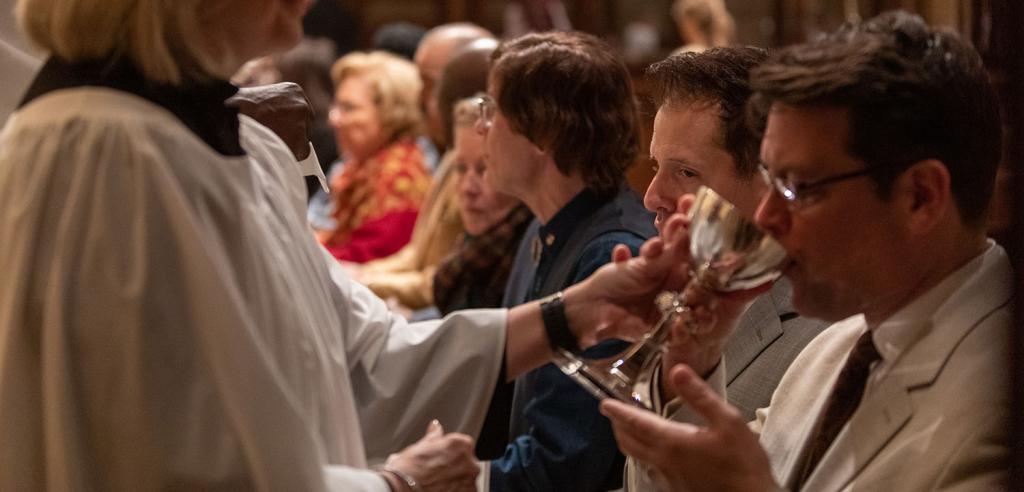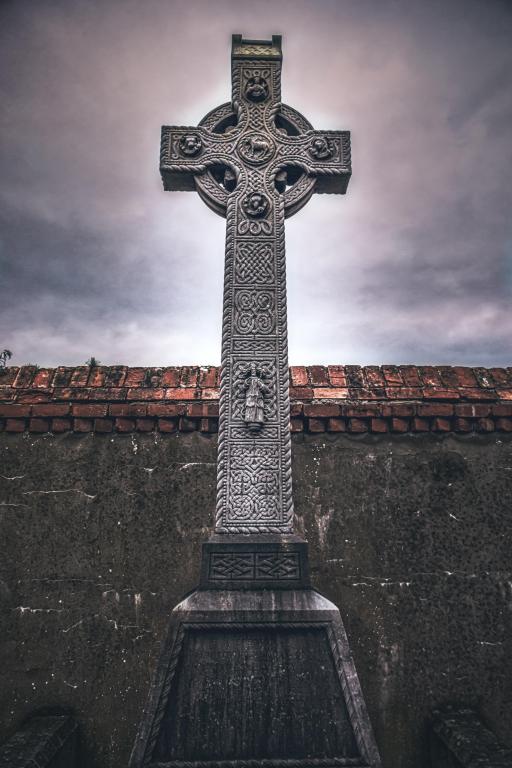“For which of you, intending to build a tower, does not first sit down and estimate the cost, to see whether he has enough to complete it? Otherwise, when he has laid a foundation and is not able to finish, all who see it will begin to ridicule him, saying, `This fellow began to build and was not able to finish.’” (Luke 14:28-30)
Much to the amazement of the men who attend a program that I sponsor, called “Men, Movies & God, I show the movie, “There Will Be Blood”. The brainchild of writer, Paul Thomas Anderson, and actor, Daniel Day-Lewis, it is a story that is loosely based on Upton Sinclair’s novel, Oil, written in 1927.
It’s fortunate that the movie takes that novel as little more than a starting point, because the novel is truly dreadful. Written with long, preachy essays designed to make the case for socialism over capitalism, Oil is Ayn Rand for leftists. “There Will be Blood” is one of those rare occasions when it is easy to say, the movie is better than the book.
The movie, however is not a simplistic diatribe on economics. Rather, it is an intense exploration of what happens when a human being gives himself wholeheartedly to a bankrupt world view. Talking one evening to a man he believes is his long-lost brother, Lewis’s character, Daniel Plainview observes:
“I have a competition in me. I want no one else to succeed. I hate most people….I see nothing worth liking. I want to earn enough money I can get away from everyone….from these people.”
And, so he does. When he discovers that the man who has befriended him is not his brother, he murders him. He exploits people to buy up huge tracts of land. He sends his son away when the boy is made deaf by an accident. When his son returns and begins to talk to his father about following his footsteps by building his on oil company in Mexico, Plainview drives him away, arguing that he can only be a competitor. And, in order to silence the charalatan-preacher who knows him best, he murders him in a violent outburst. Plainview’s final line and the last line of the movie is “I’m finished.”
And so he is. Plainview has chosen the tower that he will build, and although he may not have anticipated the cost, he has paid it. And he is finished in every sense of the word. He has won the competition he has set out to win. He is wealthy and alone. His contempt has led him to dominate or drive away everyone who might have befriended him. And he has blood on his hands, both literally and metaphorically.
What might have been a trite, simplistic movie that retraced the argument of Sinclair’s novel, Anderson and Lewis offer up a geography of the human heart. And Jesus understands how different that geography can be: We can choose life or we can reject it. And, if we do reject it, whether we do it wholeheartedly in the way Daniel Plainview does, or we pursue life, but we do it half-heartedly – the results are strikingly different.
This is why the path of discipleship that Jesus describes was referred to as “the Way”. And why you won’t find 19th century references to “religion” in the text of the New Testament. The Christian life cannot be reduced to rituals, conventions, or beliefs – as important as those are. It is – according to the New Testament – a road that leads to life,[i] a journey,[ii] a way of thinking, a way of looking at the world,[iii] a path out of desperation,[iv] a life built out of practices and convictions that heal our relationships with God and with one another.[v]
It isn’t “pie in the sky, bye and bye”. It isn’t a “get out hell free card”. It is a decision about how to live life now. The decision not to avoid hell, but to avoid becoming hell. Not the decision to go to heaven, but to begin breathing in its life-giving influence now.
Based on what I have witnessed over the years, I can’t say this often enough. Christians – far too often – talk about taking the summer off from church, about Bible study for others (but not for themselves), and too often satisfy themselves with checking off a Sunday or two, drifting through their relationship with God, rather than asking God, “What kind of tower – meaning, what kind of life – am I supposed to be building?”
Let me say this as clearly as I can – I don’t care anymore than you do about the church as an organization. I never have and – at this late stage – I doubt that there is anything that will entice me to care about it.
What I care about is the fact that Jesus creates the church, one baptized body at a time, building it up to be his body. And – as his body – to be the place where people are healed, forgiven, and restored to wholeness, so that we can become agents of healing, forgiveness, and restoration. You can believe that or not. But what Jesus is saying in the Gospel of Luke is that you can’t be half-hearted about it.
You have to make it the thing. You have to recognize that it might cost you everything else. You need to be prepared to pay that price, if it comes down to it. And it might cost you family, friends, and possessions.
The Christian life is what Eugene Peterson calls, “A long obedience in the same direction”.[vi] That is why Jesus lists this outrageous, provocative list of things that his path, his way, might cost you. It’s entirely up to him, of course. And it is entirely a function of what happens to us.
Some of us may lose family as a result of our faith. One friend of mine chose to follow Jesus, and his frustrated, angry parents finally told him, “You were an accident. We never wanted you anyway.” Another friend’s husband told her, “You can become a priest, as long as it stays a hobby.” Another friend who wouldn’t be half-hearted about his faith lost his job, struggled along with part-time jobs for over a year, and lived with the anger of his wife until it pulled their marriage apart. We all know the story of the saints ancient and modern who lost their lives in witness to their faith.
Jesus isn’t dealing in abstractions here. And I’ve both seen it and lived with the realities he is describing.
But he describes the path of discipleship in this way because we aren’t “playing” church and we aren’t indulging in a bit of nice poetry. The Christian life is not a nice thing for nice people to do. It is a frank assessment of how broken we are, how broken the people around us are, and it is the offer a way – the Way – out and through.
Now, frankly, that means that the way of Jesus is also not a lot of other things. I have already named two of them. It isn’t eternal fire insurance, and it isn’t about being nice. Yes, our lives are hidden in Christ and in Christ we live now and will live, embraced by the power of the Resurrection. But that’s not the main point.
Eternal life is life lived out in the presence of God and on the way, we are changed, and we changed not just in the life to come, but in this life as well. We are blessed in order to bless others. And counting the cost means realizing that as Christians we are called to belong to Christ. But that also means that the way isn’t about being nice. Apart from the fact that being nice isn’t always calls for, it isn’t the point. Jesus, as described in Luke’s Gospel, isn’t being nice either. There are times in life when – if we want to be healed – we need to hear hard things. We need boundaries. We need discipline. We need to sacrifice. We need to repent. There are times when – if others are going to be healed – those who exploit them need to be opposed. Bullies need to be resisted. Tyrants need to be told no – or more than just told no.
But, beyond eternal fire insurance and a niceness-factory. The Christian way is also not about me and mine. It is not about anyone’s brand of politics. It is not about countries – even the one we love. So, you can’t wrap family values round it. You can’t merge it with the views of a political party, and you can’t wrap it in anyone’s flag. Come to that, you can’t wrap it in our denominational flag.
The Christian way is the decision to follow Jesus. To begin to follow that path and to take seriously the conviction that we are here as church – as his body – to make that journey together. Each of us will need to count the cost.
In every generation there are Daniel Plainviews. People who choose a different kind of tower, a different kind of life, a different future. Not all of them are spectacularly abusive. But many of them are marked by the same kind of emptiness, thanks to ambition, selfishness, addiction, or mendacity.
There are still others who stay nominally connected to the church, but never really commit. They nibble a few hors d oeuvres, they have an occasional drink, but their lives are mostly a pastiche of trips to Home Depot, a nine to five job, and the occasional Titans game.
The invitation of Jesus, then, is to build a life, not a resume. To enter into it fully, not linger at the fringe of things. To find healing now, rather than postpone it to some indefinite future that will never come. To receive wisdom and grace, that you might become wisdom and grace in the lives others – your spouse, your children, your grandchildren, your families, and your neighbors.
Count the cost. Say yes. Build a life.
Photo by Jon Tyson on Unsplash
[i]Matthew 2:12m Acts 8:26; Acts 26.13; Matthew 7:13-14; John 11:25.
[ii]Acts 8:39, 30-37.
[iii] Acts 18:24-26.
[iv] Acts 16:16-18.
[v] Acts 9:1-2. The digest of passages that touch on this image can be found at:
https://www.scriptureway.com/about-the-site-author.html
[vi] Eugene H. Peterson, A Long Obedience in the Same Direction: Discipleship in an Instant Society, 2nd ed. (Downers Grove: IVP, 2000).













